#65: Different Character Approaches to Dealing With and Expressing Emotions
Jane Austen’s Sense and Sensibility focuses on two sisters, Elinor and Marianne, who act as foils to each other. They see the world differently; they treat relationships differently; Elinor places more value on reason while Marianne places more value on feelings and sensibility. One of the most stark contrasts between the two sisters is how they deal with their emotions and how they express them to others.
Elinor and Marianne, as depicted in the 1995 film version of Sense and Sensibility
Both Elinor and Marianne experience similar loss: they are both separated from and hurt by the men they love.
When Willoughby leaves Marianne, she has a very dramatic response, and suffers “violent affliction.” Her emotions become less violent, but they continue to be marked by outward pining and despair. She becomes very inwardly focused, not noticing the needs or circumstances of those around her, and she makes a scene at a London ball when she sees Willoughby. After he marries someone else, goes out in bad weather and becomes deathly ill.
When Elinor discovers that Edward Ferrars is secretly engaged to Lucy Steele (through Lucy confiding in her), she suffers intense pain, but she refuses to outwardly show it to Lucy. And then she continues to mask her emotions with her family, even though doing so pains her. She knows that Marianne is suffering, and she doesn’t want to add any more burdens to her family by sharing her own suffering; furthermore, she is bound by a promise she has made to Lucy Steele, and because of that promise she does not know how to share her pain with those closest to her. Yet because she is a point of view character, as readers we see and understand her suffering and her internal angst.
Elinor and Marianne, as depicted in the 2008 Sense and Sensibility miniseries
These two characters react to similar situations differently because of their contrasting personalities and because of different outside circumstances. In addition to considering how the same character will express small, medium, and large emotions differently, writers should consider how different characters deal with and express their emotions.
Later, when it becomes public knowledge that Edward is engaged to Lucy Steele, Marianne is in complete shock. But she notices that her sister is not surprised.
“How long has this been known to you, Elinor? has he written to you?”
“I have known it these four months. When Lucy first came to Barton Park last November, she told me in confidence of her engagement.”
At these words, Marianne’s eyes expressed the astonishment which her lips could not utter. After a pause of wonder, she exclaimed—
“Four months!—Have you known of this four months?”
Elinor confirmed it.
“What! while attending me in all my misery, has this been on your heart? And I have reproached you for being happy!”
“It was not fit that you should then know how much I was the reverse!”
“Four months!” cried Marianne again. “So calm! so cheerful! How have you been supported?”
Marianne struggles to understand how Elinor’s outward reality could be in such contrast to her inward reality, because for Marianne, her inward and outward realities are typically aligned.
To Marianne’s question, Elinor responds:
“By feeling that I was doing my duty.—My promise to Lucy, obliged me to be secret. I owed it to her, therefore, to avoid giving any hint of the truth; and I owed it to my family and friends, not to create in them a solicitude about me, which it could not be in my power to satisfy.”
Marianne seemed much struck.
“I have very often wished to undeceive yourself and my mother,” added Elinor; “and once or twice I have attempted it;—but without betraying my trust, I never could have convinced you.”
“Four months! and yet you loved him!”
“Yes. But I did not love only him; and while the comfort of others was dear to me, I was glad to spare them from knowing how much I felt. Now, I can think and speak of it with little emotion. I would not have you suffer on my account; for I assure you I no longer suffer materially myself. I have many things to support me. I am not conscious of having provoked the disappointment by any imprudence of my own, I have borne it as much as possible without spreading it farther.”
Elinor goes on to tell Marianne how she has forgiven Edward and does not blame him. Then she says:
“Edward will marry Lucy; he will marry a woman superior in person and understanding to half her sex; and time and habit will teach him to forget that he ever thought another superior to her.”
Marianne cannot accept that her sister could reach such a point if she truly and fully loved Edward:
“If such is your way of thinking,” said Marianne, “if the loss of what is most valued is so easily to be made up by something else, your resolution, your self-command, are, perhaps, a little less to be wondered at.—They are brought more within my comprehension.”
But Elinor will not accept Marianne’s judgment. She rebukes Marianne, in essence saying that she has loved and felt as deeply as Marianne:
“I understand you. You do not suppose that I have ever felt much. For four months, Marianne, I have had all this hanging on my mind, without being at liberty to speak of it to a single creature; knowing that it would make you and my mother most unhappy whenever it were explained to you, yet unable to prepare you for it in the least. It was told me,—it was in a manner forced on me by the very person herself, whose prior engagement ruined all my prospects; and told me, as I thought, with triumph. This person’s suspicions, therefore, I have had to oppose, by endeavouring to appear indifferent where I have been most deeply interested; and it has not been only once; I have had her hopes and exultation to listen to again and again. I have known myself to be divided from Edward for ever, without hearing one circumstance that could make me less desire the connection. Nothing has proved him unworthy; nor has anything declared him indifferent to me. I have had to contend against the unkindness of his sister, and the insolence of his mother; and have suffered the punishment of an attachment, without enjoying its advantages. And all this has been going on at a time, when, as you know too well, it has not been my only unhappiness. If you can think me capable of ever feeling, surely you may suppose that I have suffered now. The composure of mind with which I have brought myself at present to consider the matter, the consolation that I have been willing to admit, have been the effect of constant and painful exertion; they did not spring up of themselves; they did not occur to relieve my spirits at first. No, Marianne. Then, if I had not been bound to silence, perhaps nothing could have kept me entirely—not even what I owed to my dearest friends—from openly showing that I was very unhappy.”
Marianne was quite subdued.
“Oh! Elinor,” she cried, “you have made me hate myself for ever.—How barbarous have I been to you!—you, who have been my only comfort, who have borne with me in all my misery, who have seemed to be only suffering for me!—Is this my gratitude?—Is this the only return I can make you?—Because your merit cries out upon myself, I have been trying to do it away.”
This is a powerful scene between the two sisters, in part because their different approaches to dealing with and expressing emotions requires them to reconcile with each other.
When writing character emotions, it’s important to remember that there is a full range of ways a character can react to the same event: a more dramatic, outward expression or a quieter, more internal expression could both be used for either large or small emotions. A more “emotional” character, like Marianne, does not actually have more emotions—they simply express them in a different manner. It is important to note, however, that the way a character chooses to express their emotions does have consequences: Marianne pining for months does have negative effects on her well-being, and prevents her from dealing with her emotions and facing the truth about Willoughby.
There are a full range of possibilities responses in between these two opposite approaches: there are endless ways a character might deal with or express their emotions. There is no guide, no rule on whether your character should express emotions in a big or small manner, an internal or an external way: this is something you have to choose for each character, and this choice will reveal a lot about the individual and their circumstances.
Exercise 1: Write a scene with two characters. They can be siblings, friends, coworkers, or have something else that ties them together and creates similarities between them. In the scene, have something negative happen to both of the characters. The two characters should deal with and express their emotions in different ways (they do not need to be polarly opposite in their reactions, but they can be).
Exercise 2: Write a second scene with two characters with something in common—they can be the same characters from exercise 1, or new characters. In this scene, have something positive happen to both of the characters. Once again, have the characters deal with and express their emotions in different ways.
Exercise 3: Choose a handful of people in your life that you know well or interact with on a regular basis. For each person, write a several sentence sketch about how they deal with and express their emotions.
Then reflect on the differences between these people, and how their reactions are impacted by their personalities and circumstances.

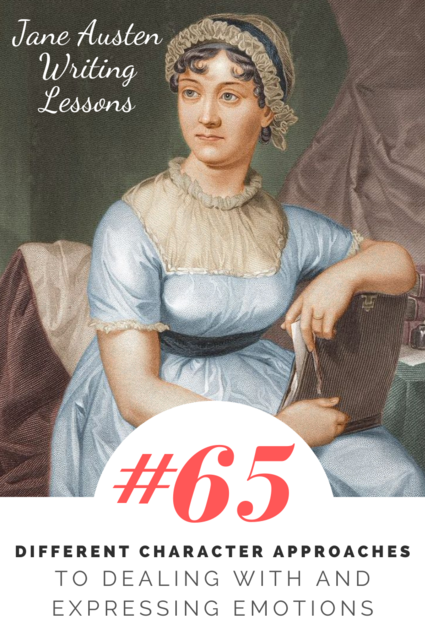
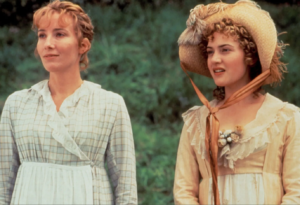


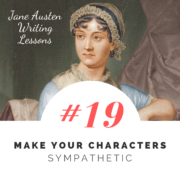
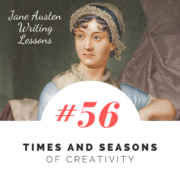
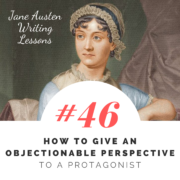
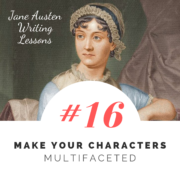
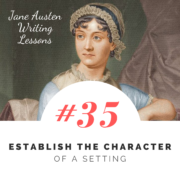
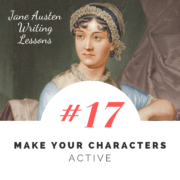
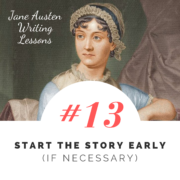


Leave a Reply
Want to join the discussion?Feel free to contribute!